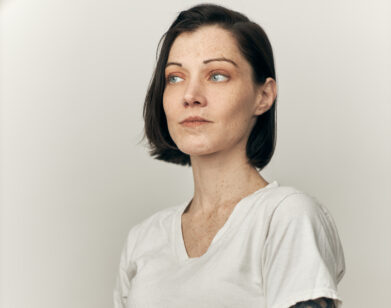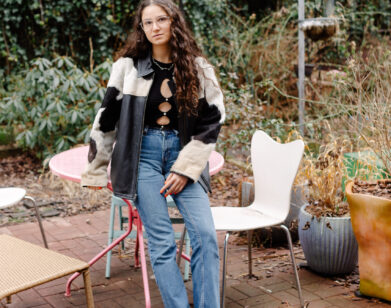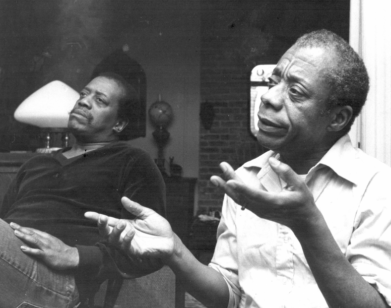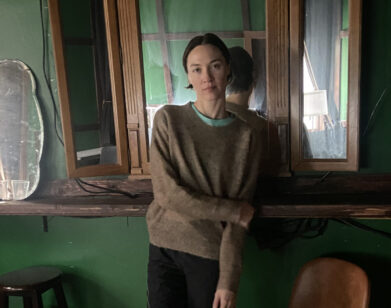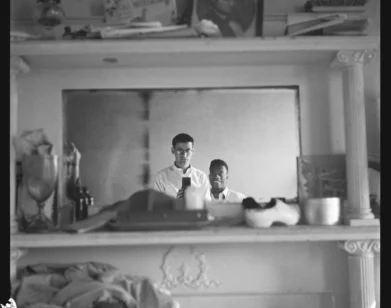Rough Draft
Zakiya Dalila Harris on Goosebumps, Toni Morrison, and Her Favorite Writing Cocktails
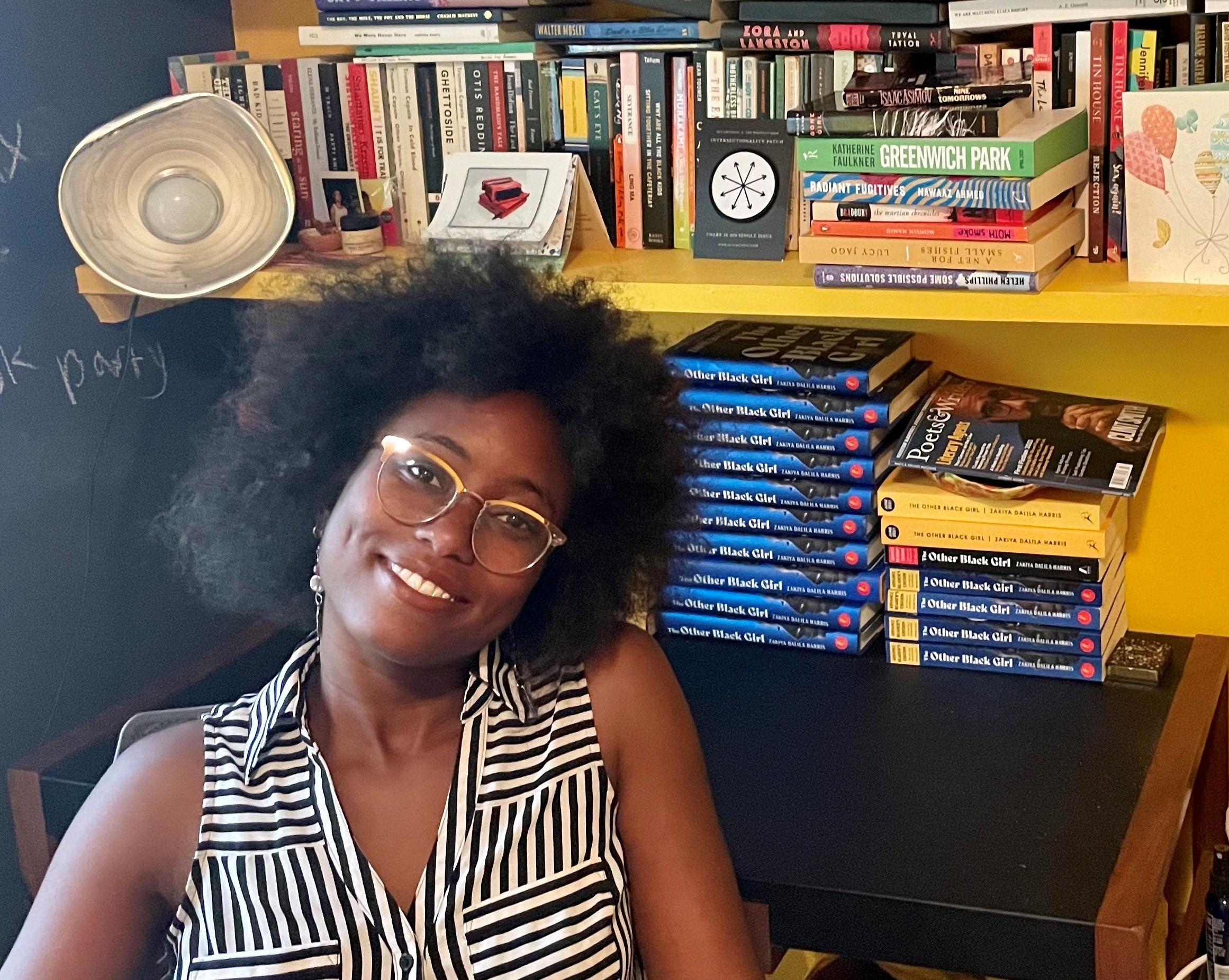
This is Rough Draft, in which our favorite writers get to the bottom of their own craft. From preferred writing drinks to whether or not you really need to carry a notebook, we find out all the ways they beat writer’s block and do the work. This week, we speak with Zakiya Dalila Harris on the occasion of her debut The Other Black Girl. Referred to as The Devil Wears Prada meets Get Out, the novel follows an Editorial Assistant named Nella as she navigates a work environment in which she is the only Black employee— that is, until a woman named Hazel joins the company. Strange and sinister events ensue, making The Other Black Girl the ideal pulse-quickening drama to curl up with this summer. Here, discover all the elements that helped Harris get it done.
———
JULIANA UKIOMOGBE: Describe your ideal writing atmosphere. What gets you in the mood?
ZAKIYA DALILA HARRIS: My ideal writing atmosphere is somewhere outside of my home, either at a coffee shop, a library, or a bar depending on what headspace I’m in. I find that I’m most productive when I’m around other people who are also working, or chatting with one another. Also, music. The kind of genre also depends on my mood, but typically jazz, oldies, or hip-hop are the ones that I go to when I’m first starting to write.
UKIOMOGBE: Do you eat or drink while you write? If so, what do you like to have?
HARRIS: Yes! In the morning, coffee is a must; if I’m writing in the evening, I might write with a beer or a gin and tonic—especially if I’m trying to meet a deadline. I do occasionally drink while writing, especially if I’m working on a long-term, more intensive project. It makes me feel less inhibited, less afraid of making mistakes, and more creative.
UKIOMOGBE: Do you keep a notebook and/or journal?
HARRIS: Not anymore, although I had one for most of my life, until about two years ago. I do have a place where I jot down writing ideas, but definitely want to get back into journaling.
UKIOMOGBE: What’s your favorite quote?
HARRIS: “If there is a book that you want to read, but it hasn’t been written yet, you must be the one to write it,” by Toni Morrison. This is definitely part of what pushed me to write The Other Black Girl.
UKIOMOGBE: Whose writing do you always return to?
HARRIS: James Baldwin. I find his voice so soothing, and his work always prescient. Stephen King. He’s just so magnificent. And essay writers like Roxane Gay and Leslie Jamison.
UKIOMOGBE: What books did you read as a kid/teen? Have your thoughts about the writers changed?
HARRIS: I was a big Goosebumps fan as a kid. Funnily enough, I listened to the audiobook of one of my favorite Goosebumps books a few months ago, just to see what I thought of it. And I still really enjoy R. L. Stine’s storytelling. In fact, think I have even more respect for him now that I’m older.
UKIOMOGBE: Do you read while you’re in the process of writing? Which writers inform your current work the most?
HARRIS: If I do read while writing, it’s usually something unrelated to what I’m working on. However, I do remember reading a few different books while editing my manuscript, because I did find that helpful. A few writers who inform my current work the most are Nella Larsen (particularly Passing), Toni Morrison (Sula), and Octavia Butler (Kindred).
UKIOMOGBE: How many drafts of one piece do you typically write?
HARRIS: It depends. Between starting the book and the book going to the printer, The Other Black Girl underwent at least five revisions. For shorter pieces, like book reviews or essays, I’ll usually write one or two drafts.
UKIOMOGBE: What would the title of your memoir be?
HARRIS: “This Might Be a Deep Cut, But…”: A Memoir.
UKIOMOGBE: Who’s your favorite screenwriter? Can a movie ever be as good as the book?
HARRIS: Nora Ephron. When Harry Met Sally is a perfect movie. And, I think movies and books are apples and oranges. I personally want different things from a book than I do from a movie.
UKIOMOGBE: Do you consider writing to be a spiritual practice?
HARRIS: I think so, although I’m not a particularly spiritual person, so I’d be more inclined to say that the feeling I get from writing is more like a runner’s high. There’s nothing like getting into the writing zone when everything flows outward easily, and you can clearly see all of your characters and your subjects.
UKIOMOGBE: Which writers would you choose to have dinner with, living or dead?
HARRIS: Zora Neale Hurston and Octavia Butler. It would be so fun to hear both of them speak in real life and to soak up all of their energy and wisdom.
UKIOMOGBE: What advice do you have for people who want to be better writers?
HARRIS: Share your writing early with other people. Having other eyes on your work is crucial, especially when you’ve been cocooned in your work for so long. It’s important to open up your bubble. Also, be around people as much as you can. People-watch at the park. Work a job that requires you to talk to strangers.
UKIOMOGBE: What are some unconventional techniques you stand by?
HARRIS: I write by hand, especially when I’m working on the first draft of something. Scratching my words out with pen and drawing arrows and scribbling in the margins helps me get my ideas out without getting too stuck in my head. I mentioned earlier that I have to listen to music when I’m writing, but it’s not just music—sometimes I’ll put on a podcast or even a favorite television sitcom in the background. I often need to have something happening around me in order to not get distracted. (I know, it makes no sense.)
UKIOMOGBE: Can great writing save the world?
HARRIS: I’m not sure I believe great writing can save the world on its own, but I do think it’s an important step toward opening one another’s minds and raising awareness. I think many of the reasons our world needs saving are due to close-mindedness, and a lack of empathy. Great writing can shine a light on perspectives that would otherwise be missed. It inspires empathy—and empathy can do wonders.


